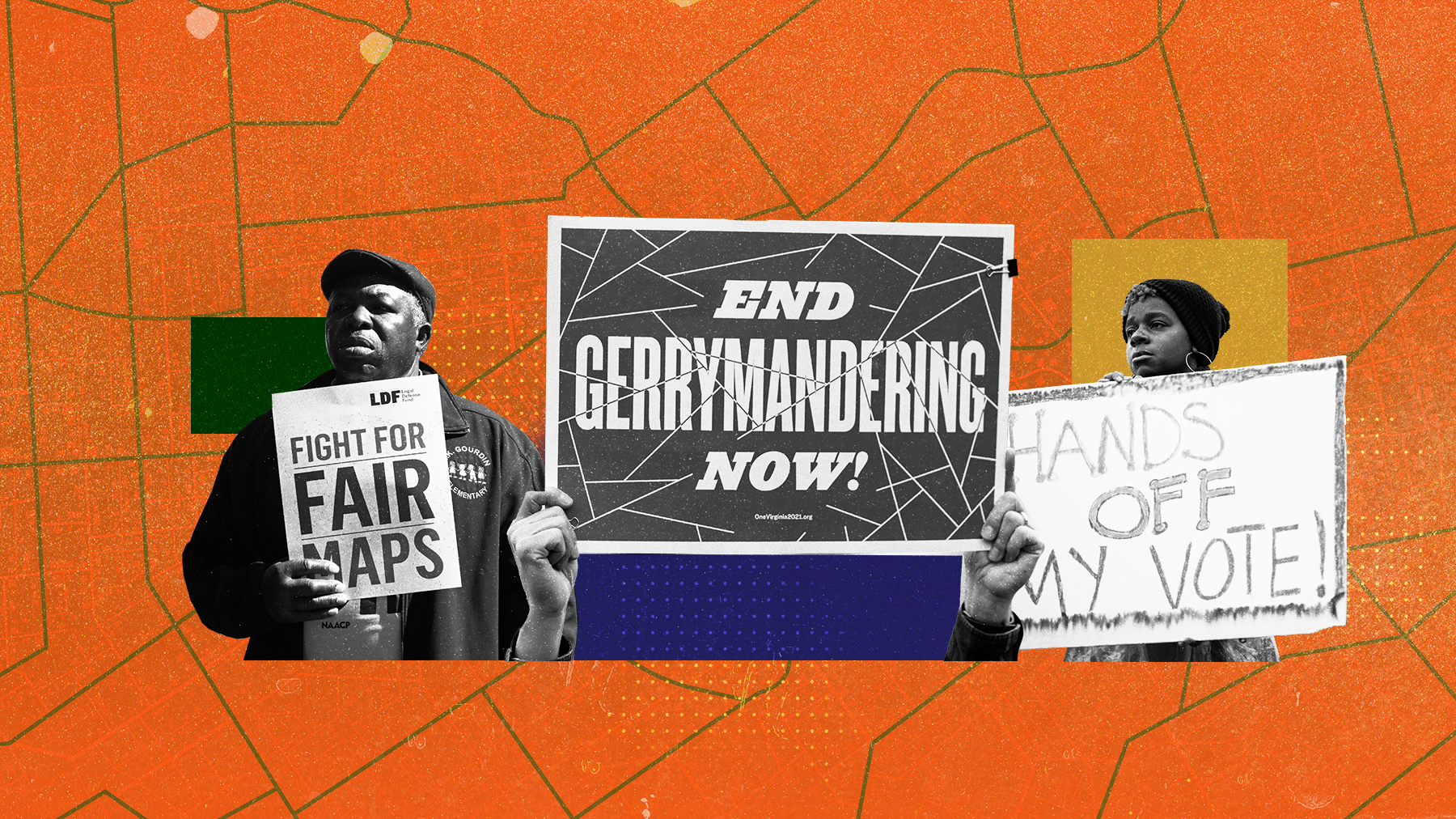Gerrymandering is one of the most entrenched obstacles to fair and representative democracy in the United States. To fight its spread, experts analyze proposed voting district maps and provide testimony in legal challenges. They identify places with diverse populations where councils or legislatures create at-large districts, pack voters of one ethnic group into a single district or otherwise violate the Voting Rights Act of 1965 (VRA), which outlawed discrimination in voting.
To help in this data-intensive work, the Southern Poverty Law Center has partnered with the Redistricting Data Hub (RDH), a nonpartisan organization that collects, processes and publicly hosts data for redistricting in all 50 states.
34%of state legislative and congressional candidates in the Deep South are people of color despite making up 43% of the population.
The data resulting from this partnership is user-friendly, accessible to anyone looking to better understand their community and how patterns, trends and behavior in their region may change over time.
The project is not exclusively focused on congressional and state legislative voting districts. The investment in time, money and technical expertise will also allow voters to view data at the county, municipal and local levels — data previously unavailable without extensive sorting and research.
Members of the public have utilized data from RDH since its launch in 2021. The SPLC entered into an agreement with RDH in 2023 to make statewide and select local jurisdiction data publicly available in Alabama, Florida, Georgia, Louisiana and Mississippi — states where it can be difficult to get voter data. This data allows members of the public and those who are working with them to identify gerrymanders and draw alternative maps.
In states like Mississippi, election results are only available as PDFs, which prevent users from summarizing or joining with other data. In Georgia, maps must be collected from overworked election officials at the county level, often requiring digitization and validation against other sources like voter registration data. Alabama charges individuals nearly $37,000 — the highest fee in the nation — for a statewide voter data file.
RDH collects and processes all these datasets, then makes them publicly available for free on their website.
Custom RDH-produced datasets have been used in several high-profile redistricting cases in Louisiana and Alabama. More recently, RDH provided analysis of the new state legislative maps in Mississippi, which diluted the voting strength of Black Mississippi residents. They were ultimately rejected, requiring another court-ordered round of revisions.
The partnership — in addition to preparing for the next redistricting cycle in 2031, and any pending mid-decade redistricting efforts in states — is essential to several current efforts, including:
- A project the SPLC launched in 2024 to increase the number of experts capable of drawing and analyzing redistricting plans. The Race and Redistricting Expert Project enrolled 24 people to receive training, support and feedback on assignments from legal and data experts, including RDH staff.
- Redistricting Advocacy and Community Education, a community-based initiative, is geared toward helping local groups and community leaders address redistricting, the census undercount, polling place closings, legislation and policies that adversely affect marginalized communities.
The graduates of these programs will have their work cut out for them. People of color make up 43% of the population in the Deep South but only 34% of state legislative and congressional candidates, according to data only available through RDH’s work. The specialized skills of the RDH team will be important in states where legislators are arguing partisan gerrymandering is permissible while the U.S. Supreme Court invalidates or weakens sections of the VRA that outlaw discrimination on the basis of race, color or language.
Without fair maps, real representation is impossible — and communities across the South deserve better.
Fred McBride is a senior adviser, voting rights with Legal Management and the Democracy: Voting Rights litigation team at the SPLC.
Kate Donovan is the director of the Redistricting Data Hub.
Image at top: The Southern Poverty Law Center’s partnership with the Redistricting Data Hub provides access to voter data — from congressional districts to local elections — that enables members of the public to identify gerrymanders and draw alternative maps. (Photo illustration by the SPLC; original images by Bill Clark/Shannon Finney/Drew Angerer/Getty Images)






